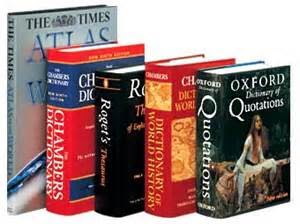By Keith N FisherNow that we’re up and running again, and promoting the Blogck with a renewed push, I’m intimidated. Before, when I was almost alone, I didn’t worry about my writing. Who was going to read it, right? Also, have you seen the list of guest bloggers we have lined up for the next couple of months?
Not only do we have editors and authors. (Did you see Jeff Savage in there?), but I thought it would be fun to bring back the original writers on the Blogck. The response has been wonderful, but as I said, I’m intimidated. These guys are my heroes and I will be sharing the page with them. Still, I want to thank them for agreeing to share their wisdom with us.
Recently, I implemented an idea that has helped my writing and I wanted to share. How many of you write with a dictionary or other reference books at the ready? These helpful resources are invaluable in getting the sentences right.
While free writing, many will wait until they edit to check the dictionary, thesaurus, baby name lists, etc. When you are OCD, however, it drives you crazy until you look it up. I try to use red
XXXX’s then come back later and get on the Internet, but spell check and other “Helpful” technologies make me stop and fix it.
I have a link on my computer desktop that goes straight to Webster’s online. Then, of course there is Wikipedia. Many of you know, however, most of my writing is done away from an office. In places where the Internet is not available the red
XXXX’s come out.
Also, in the past; little snippets that need to change to make the story better, the ideas for plot twists I might want to explore, bits of information that came to mind, were put into a new document and saved into the project file. Doing this was helpful, because writing something down always helps me remember, but sometimes it was forgotten. Who checks their notes every time they sit down to write?
Recently, I wrote about my experience at a writer’s retreat. While at the event, I acquired three reference books that have changed my writing. I keep wondering how I ever lived without them. Of course I’m talking about the
emotion, positive trait, and negative trait, thesaurus’ (Thesauri).
The action lists in those books have helped me show rather than tell in ways I only dreamed about before. The problem I had, though, came when I couldn’t bring the books with me to write. My solution occurred on Christmas morning while I waited for my family to get out of bed. I purchased the PDF version and put it on my desktop. Now when I find myself telling and not showing, I open the thesaurus and find an action that shows what I’m trying to say. It goes with me, anywhere I happen to be writing.
There are PDF versions of many references that I plan to put on my desktop in the future. Also, a page can be saved from the Internet that will open on your computer even with the WIFI turned off. I’m developing a whole library of instant references that go with me.
As for the info snippets, my new, (old) tool is sticky notes, both literal and digital. I heard a story once, about a Franklin Planner executive walking into another man’s office and watching the man work. the man had placed sticky notes everywhere and scraps of paper were scattered all over the office. Yes, sticky notes can get out of hand, but here’s what happened to me:
I was editing at my desk, during lunch, at work the other day. I suddenly remembered an important plot point I’d left out. I didn’t want to leave what I was working on to go back and fix it. I grabbed a sticky note from my desk, wrote down the thought, stuck it on my keyboard and went on.
The note stayed there for two days. Every time I opened my laptop, It reminded me. I kept moving it out of the way of the keys I needed to use. Finally, I implemented the changes, but I had been thinking about the best way to write it, so I’d made it perfect.
In the interim, I was writing in a coffee shop when a plot point sprang to mind. I didn’t have any sticky notes. Suddenly, I remembered the digital version that comes with Windows. I opened one up and made my note. Now it reminds me, every time I turn on my computer. Yes, I could end up like the man in the story, but the secret is to deal with the notes, then delete them.
Good luck with your writing—see you next week.













